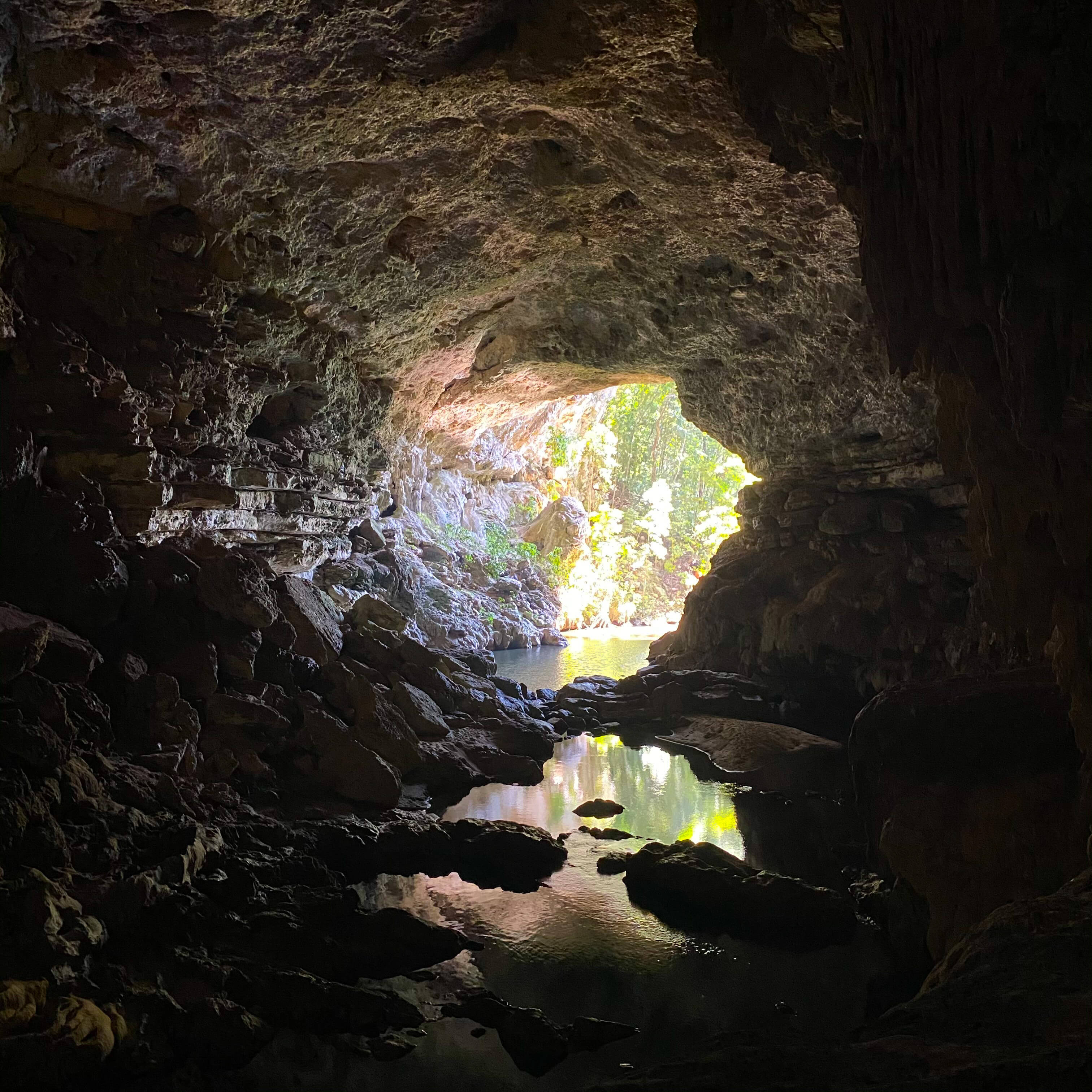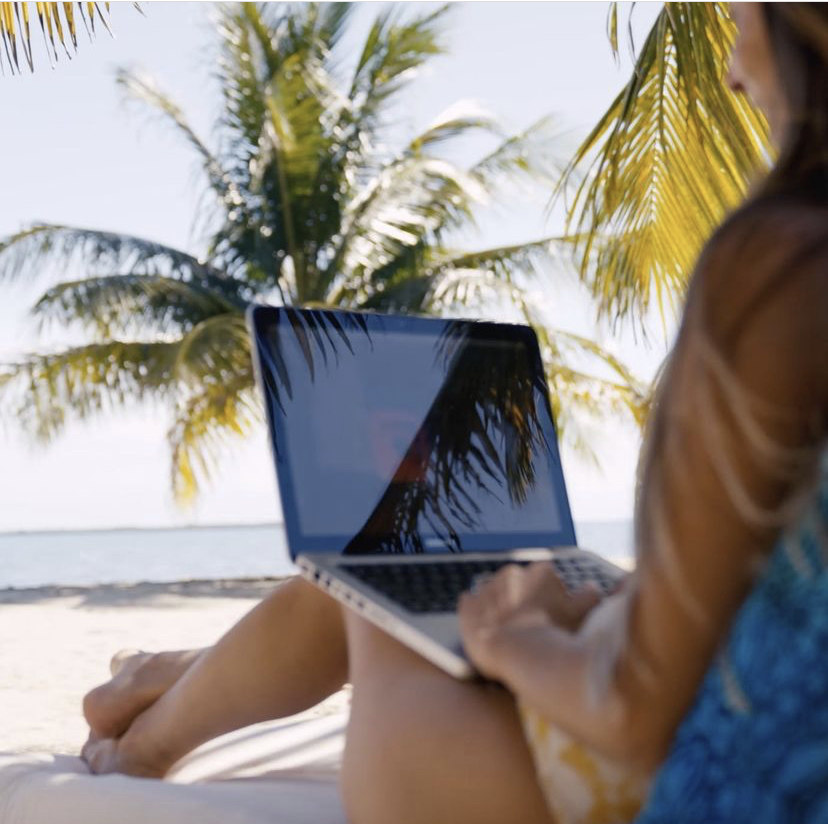In the wake of a global pandemic, a daily commute to the office on a crowded train or bus is a thing of the past for many people. With days and days spent trapped in our own homes, it is no wonder that searching for ‘remote work destinations’ on google turns up 64,000,000 results. But is the life of a digital nomad all it’s cracked up to be? What are the downsides, if any?
In January 2021 I took an opportunity to help launch a new digital nomad community in Belize and work remotely there for 2 months. It wasn’t hard to say yes to this small country on the Caribbean coast of Central America, a tropical paradise with lush rainforests, white sandy beaches and the second biggest coral reef system in the world. I was tired of being stuck inside, tired of cold weather and missing my freedom. I was also launching a new career as a writer and content creator and thought, what could possibly be the downside to this? And as it turns out, there really weren’t many. But there are still things to consider before making this choice for yourself and packing your suitcase and so from my experiences, here are the digital nomad lifestyle pros and cons.

The Pros
First, there’s choosing where to go which is almost as exciting as actually going. With countries all over the world opening their borders to digital nomads, you can pick from a huge list of places to plug in your laptop. Croatia, Barbados, Mauritius and more have begun to offer specific remote work visas and others will allow you to come on a tourist visa as long as you don’t seek employment within the country itself. Each one comes with its own particular perks and there is something to suit everyone. Belize worked well for me because I could go on a tourist visa, English is the first language, it’s in a central US time zone and the weather is nothing short of glorious. I was sold.
Speaking of weather, how does waking up every day to bright blue skies and the kind of temperature you are only used to having on holiday sound? Consistently warm weather is a HUGE plus, especially for those (like myself) who are from colder countries very prone to incessant rain and grey skies. The impact a sunny day can have on your mood is unparalleled.

And then there is the vibe, the culture and a whole different style of living. New sights, new styles, new tastes. Meeting the locals, learning their ways and trying the food. A relaxed and laid back approach to everything, leaving behind the high-stress lifestyle and addiction to being busy.
Distance from home can actually help when you run into challenges. It affords you the perspective to see the whole picture from afar and find creative solutions. If you are with other nomads, learning from the experiences of others can expand your mind to possibilities too, an engineer helping a salesperson, a designer assisting a marketing manager. I found everyone I met working remotely was more productive and less stressed. There were distractions all around but less of an impetus to experience them right there and then, like when on vacation.

But when I wasn’t working, I definitely made the most of it and had some experiences that I still can’t truly believe happened. Hiking through the rainforest, jumping into a waterfall and gazing up into the canopy listening to the screams of Howler Monkeys was possibly one of the most intense and breath-taking moments of my life. I explored Mayan ruins, snorkelled the Belize Barrier Reef and went into underground caves. When in our home surroundings, we tend to do the same things and not seek new experiences as much, so transplanting yourself to a new location will fire up your sense of adventure.

The cons
The issue with leaving things behind? Leaving things behind. Whilst mobile phones, social media and Zoom calls mean we can keep in touch with our loved ones at the touch of a button, it doesn’t make up for missing the events, in-person catch-ups and being able to ‘just pop round to see mum’. Time zone difference can also mean that your friends and family go to bed in the middle of the afternoon or vice versa and this can leave you feeling isolated at other points in the day. The key here is to find a community to support you in real life, in real-time. I was fortunate to be staying with a group of other nomads, and I would highly recommend this. The lack of roots you have in your location can also leave you feeling unsettled and to combat this, talking up a new local hobby can help you to find yourself and feel more stable.

And now, the biggest issue that faces remote workers. Reliable internet connection. If you can’t get online these days, you’re usually unable to work. And not everywhere has the same strong WIFI you might be used to that can withstand your needs. Therefore before you choose your location and where you will be staying, check this out. Ask questions, look at local groups on Facebook who might give you some insights and as a back up, buy a portable WIFI dongle or pay as you go data sim card for your phone so that you can always hot spot if it does go down and leave you stranded.
The truth is that we have all felt like digital nomads this past year but in our own homes. Feeling unsettled, missing our friends and our normal lives and not knowing what tomorrow will bring. Taking the step to relocate abroad even for a short period is taking all of those coping mechanisms you developed and using them to create a positive experience for yourself.
Do your research, take out travel insurance and then set yourself free to explore and create new memories in the wake of the pandemic.


